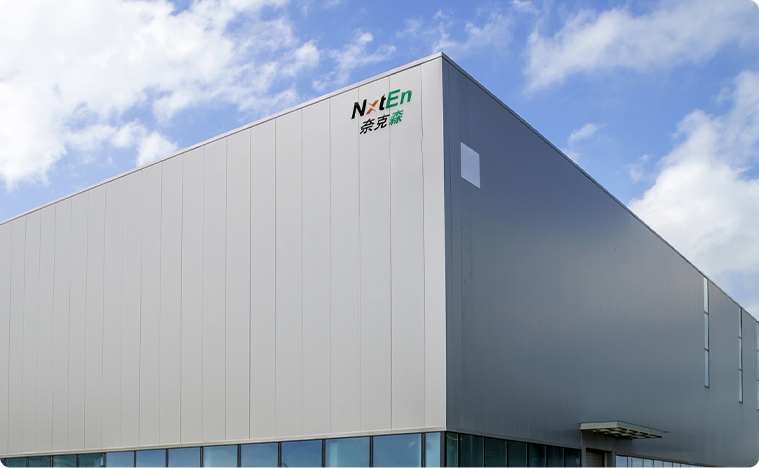Nxten lithium-ion Batteries deliver outstanding performance through high energy density, wide temperature range operation, high power output, and multi-level safety protection, meeting diverse application needs from residential energy storage to large-scale industrial scenarios while ensuring long cycle life and exceptional reliability.

 About Nxten
About Nxten
0㎡

0+

0+

0+
 What’S News
What’S NewsAs a core component of energy storage systems, battery cells are crucial for energy storage, release, and the safe and stable operation of the system. High-quality battery cells not only determine the capacity and power level of the entire energy storage system but also influence the lifespan and operating efficiency of the equipment. Next-generation battery cells, represented by lithium-ion technology, demonstrate comprehensive performance far exceeding that of traditional batteries thanks to breakthroughs in materials, electrochemical structure, and manufacturing processes. Lithium-ion batteries possess superior performance characteristics such as high energy density, wide operating temperature range, high power output, and multi-level safety protection, meeting the diverse application needs from residential energy storage to large-scale industrial scenarios, while ensuring long cycle life and excellent reliability. This means that, within the same volume and weight, battery cells can store more energy, meeting the needs of various modes such as home backup power, power peak shaving and frequency regulation, and integrated photovoltaic-storage-charging systems, while maintaining stable output during grid-connected and off-grid switching.
In practical applications, another major value of battery cells lies in their operating efficiency and intelligent management capabilities. Modern energy storage systems typically incorporate a Battery Management System (BMS) to monitor key parameters such as cell voltage, temperature, state of charge (SOC), and health status in real time. This enables precise and balanced management, ensuring each battery cell operates within its optimal range, thereby extending overall lifespan and reducing degradation caused by individual cell variations. Simultaneously, multiple safety strategies, thermal management systems, and optimized structural design ensure battery cells remain stable under complex environments such as high and low temperatures and prolonged loads, reducing the risk of thermal runaway and improving overall system safety.
As the industry expands and application scenarios increase, the post-construction maintenance of battery cells becomes particularly important. A reasonable inspection strategy and continuous management of temperature, humidity, and ventilation are crucial for maintaining battery performance. Although lithium-ion batteries themselves have relatively low maintenance costs, regularly checking the tightness of connection terminals and observing for bulging, leakage, or abnormal heating remains an indispensable part of ensuring operational safety. The emergence of intelligent monitoring platforms makes maintenance more efficient, allowing the system to provide early warnings based on battery status, preventing the escalation of faults.
Regarding the storage environment, battery cells also require appropriate environmental control. For long-term storage, maintaining a charge level between 30% and 60% is optimal. The battery should be placed in a dry, cool environment with minimal temperature fluctuations to reduce excessive self-discharge and prevent a decline in electrochemical activity. Avoiding direct sunlight and short-circuiting with metal objects are also crucial safety principles during storage.
Battery cells are not only the "energy warehouse" of an energy storage system, but also a comprehensive technical module integrating high energy density, safety protection, intelligent management, and long-term reliability. From superior performance to post-maintenance, from operation to storage, every detail affects the stability and user experience of the entire energy storage platform. High-quality battery cells not only enhance the value of energy storage systems but also represent the future direction of a safe, green, and efficient energy system.
Located in a key energy hub in China, Ningbo Nxten Energy Technology Co., Ltd. enjoys optimal connectivity with the global renewable energy market. Our team possesses exceptional capabilities in international trade compliance and cross-border logistics solutions. We operate a fully integrated supply chain, achieving a 30% increase in production efficiency and consistently adhering to Six Sigma quality standards.